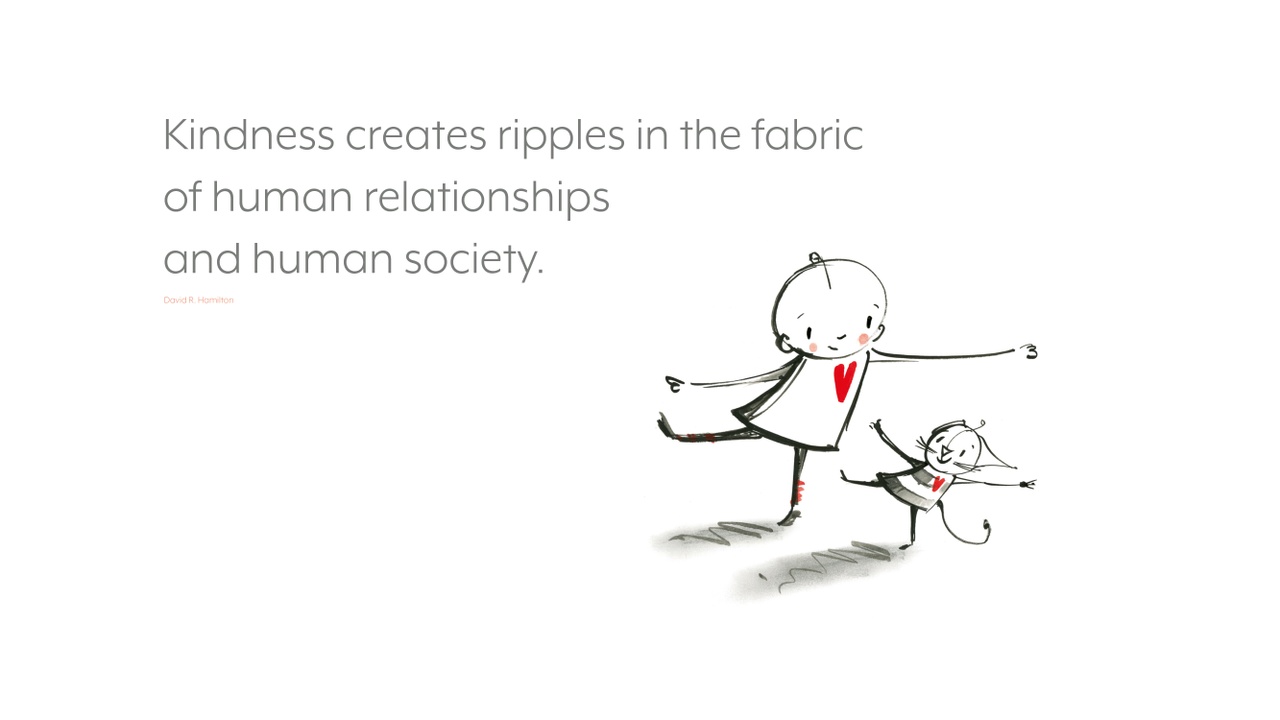Imagine a global pandemic of kindness.

Imagine a global pandemic of kindness.
Not the kind of kindness that is sickly or insipid. But kindness that runs deep into a community, that makes people feel seen and connected, a part of something bigger and builds faith, trust and hope again in humanity - in each other. The kind of kindness that means something.
Kindness is not just about being ‘nice’, it is a powerful substance that touches our lives. It it is about community, togetherness and being seen, heard and belonging. We are all deeply entrenched in kindness, if we recognise it or not. It is woven into the corner stones of our culture as an ethical way to live. It underpins our laws and policies, religious systems and care systems. Kindness - altruism - or selflessness is part of the fabric of our humanity. However, sometimes it seems that the world is full of cruelty and inhumanity. We can feel traumatised about how the world seems to function and this can lead us to feel paralysed or that acts of kindness are inconsequential. The reason we can feel so traumatised is because these acts of inhumanity actually go against our natural instincts. Despite what you may have been told, we are not inherently selfish. The truth is that we are inherently kind - we are even hard wired for it! Kindness really is a cornerstone to human thriving.
WE ARE BIOLOGICALLY HARD- WIRED FOR KINDNESS.
David R. Hamilton PhD, in his book The Five Side Effects of Kindness, says ‘…The human body is wired for kindness ... acting kindly boosts the level of dopamine and serotonin, which are chemical messengers involved with positive emotions. It also produces oxytocin, the “bonding hormone”. It even produces endorphins, the brain’s natural versions of morphine and heroin…’( 2017, p20).
KINDNESS IS GOOD FOR US! However, it is also very important that kindness is not abused. In healthy community, kindness is reciprocated and appreciated. We all have a right to be valued and treated with dignity and respect.
Being altruistic – placing the needs of others ahead of our own is not about neglecting our own needs. Altruism is knowing that we have intrinsic worth, not that we get our worth or value from what we do or what others think of us. The former builds self-esteem the latter damages self and healthy relationship.
Teaching and learning about appropriate boundaries and not tolerating any sort of abuse or disrespect is a part of teaching kindness. Treating self and others with the dignity and respect we all deserve demands the right kinds of 'yes' and 'no’. Any sort of abuse is not OK and should have consequences. It is often tolerated because we don’t recognise the worth and value of ourselves or others.

